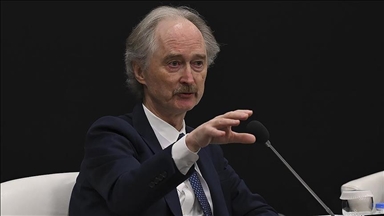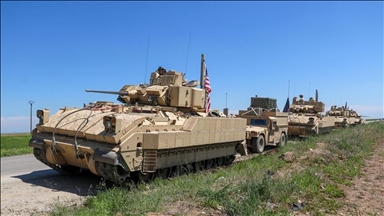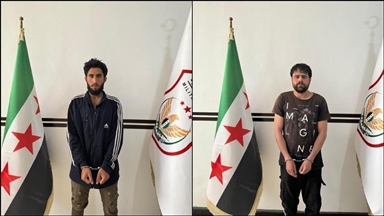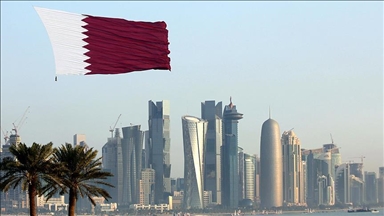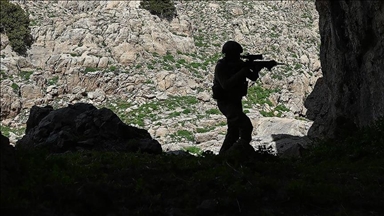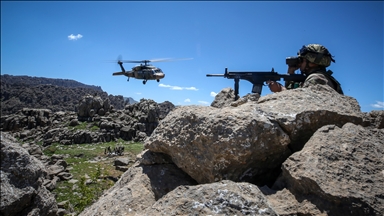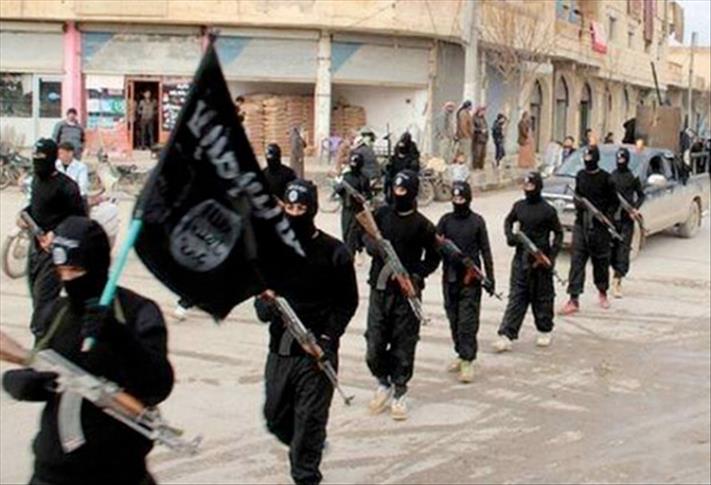
By Hader Glang
ZAMBOANGA CITY, Philippines
A Philippines-based anti-terrorism council has said pledges of allegiance to the Islamic State in Iraq and the Levant, or ISIL, are gaining ground in the country -- particularly among militant groups in the Muslim south.
During a security forum co-organized Thursday by the European Union, Anti-Terrorism Council Assistant Secretary Oscar Valenzuela said radical foreign preachers had gravitated towards the country.
"The Philippines was not spared from the 'regional spillover' of the international security crisis sparked by [ISIL] in the Middle East and spread through social media and the Internet," said Valenzuela.
In July, senior Abu Sayyaf leader Isnilon Hapilon appeared in a YouTube video swearing an oath of loyalty to ISIL leader Abu Bakr al-Baghdadi in front of a black banner, while a spokesman for splinter group the Bangsamoro Islamic Freedom Fighters has confirmed a video showing their members vowing loyalty to ISIL is genuine.
Hapilon, who is wanted on terrorism charges and has a U.S. bounty of $5 million on his head, pledged to recruit more members.
According to Valenzuela, the presence of foreign Muslim preachers may also have security implications for the Philippines. Both Australian national Robert Edward "Musa" Cerantonio -- an alleged ISIL preacher -- and Canadian citizen Abu Ameenah Bilal Philips were recently arrested in the south. Philips has denied links to any terror groups.
Valenzuela added that the Anti-Terrorism Council is still validating reports of two Filipinos having joined ISIL abroad.
He also admitted that there is no solid evidence, but only suspicion, of Filipinos joining the group in Syria or Iraq, explaining that any recruits would most likely have been among workers stationed in or near the conflict areas who "are vulnerable to recruitment by [ISIL] because money is so abundant."
However, Autonomous Region in Muslim Mindanao Governor Mujiv Hataman dismissed reports that ISIL had accessed the region.
"There is no recruitment for the Islamic State group in my area, despite various reports that the jihadist group in Iraq and Syria is building its membership in the Philippines," news website Interaksyon reported Hataman as saying.
The governor explained that he had visited Basilan province -- a known Abu Sayyaf stronghold -- nearly every week at the time of the reports and spoken with the area’s intelligence community, provincial director and battalion commander, who also expressed they knew nothing about such activity.
Hataman further confirmed that authorities in the autonomous region have been vigilant in not letting their guard down so no ISIL members could enter the region.
The regional police director, Chief Superintendent Noel delos Reyes, had earlier also dismissed reports of ISIL recruiting on the island, which he said were simply hearsay.
Governor Hataman also expressed his frustration with the activities of the Bangsamoro Islamic Freedom Fighters and Abu Sayyaf, saying that their tactics of beheading civilians, theft and "terrorizing" were not far from those of ISIL.
The Philippine presidential office is currently working on measures to counter any potential threats from ISIL in the Philippines, particularly in Mindanao.
Earlier, the military had said that any Filipinos who might have joined ISIL would most likely have crossed the borders from somewhere other than home territory.
Jose Lorena -- undersecretary with a government body that oversees ongoing peace talks with rebel groups -- told reporters that the Anti-Terrorism Council is carefully studying the "road of radicalization" in Southeast Asia and Mindanao.
"Our national security was verifying the road of the [ISIL] in our country. As of now, there has been no proven fact or evidence to prove it," he said, adding that a statement to that effect was being verified.
Lorena revealed that programs to limit the threat of ISIL were being established, including those aimed at involving madaris (Islamic schools) in countering extremism, fostering reconciliation and undertaking a healing process.
"The problem we had is not about the religion and culture, it is the case of extremism and moderation," Lorena said.
Meanwhile, Rommel Banlaoi, chairman of the Philippine Institute for Peace, Violence and Terrorism Research, said that members of at least four militant groups in the Philippines have been identified as "followers" of ISIL.
Outside of the Abu Sayyaf and the Bangsamoro Islamic Freedom Fighters, the Rajah Solaiman Islamic Movement and the Khalifa Islamiyah Mindanao have in previous years waved the black flag now known as the symbol of ISIL.
"We have seen the Black Flag [with the groups] as early as 2010, and we had no idea that it belongs to [ISIL]," Banlaoi said.
Speaking for Armed Forces of the Philippines chief of staff Gen. Pio Catapang, Brig. Gen. Joselito Kakilala said, that the Khalifa Islamiyah Mindanao group, whose existence was first reported in 2012, can be a "factor of concern" for the country's security if it can force a direct tie with the ISIL.
The military official added the Khalifa Islamiyah Mindanao can emerge as an umbrella organization for other existing and emerging jihadist groups that embrace the idea of creating an Islamic state in southern Philippines, as envisioned by the Jemaah Islamiyah -- a militant Islamist organization that aims at establishing a regional Islamic caliphate in Southeast Asia.
Anadolu Agency website contains only a portion of the news stories offered to subscribers in the AA News Broadcasting System (HAS), and in summarized form. Please contact us for subscription options.


